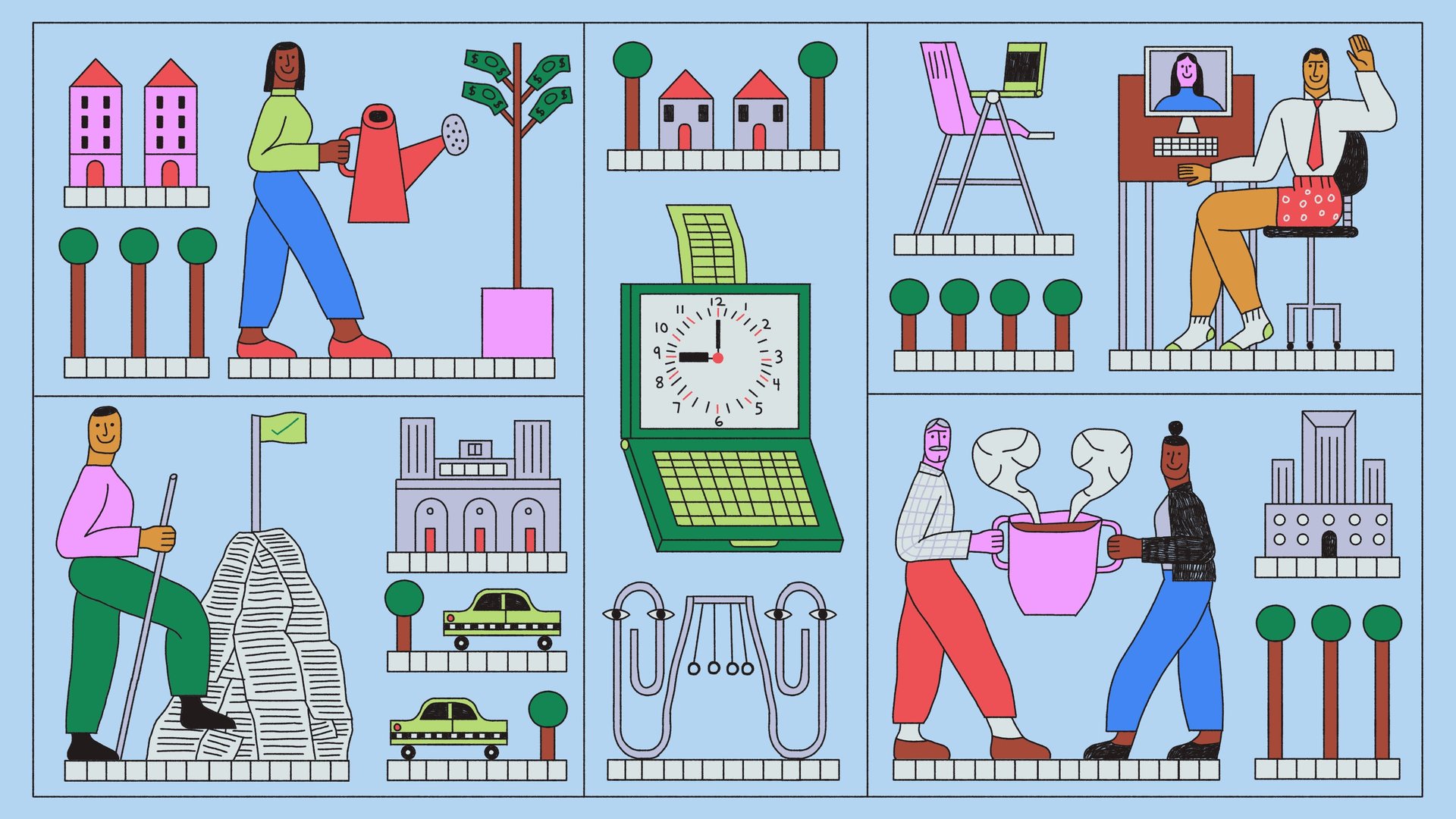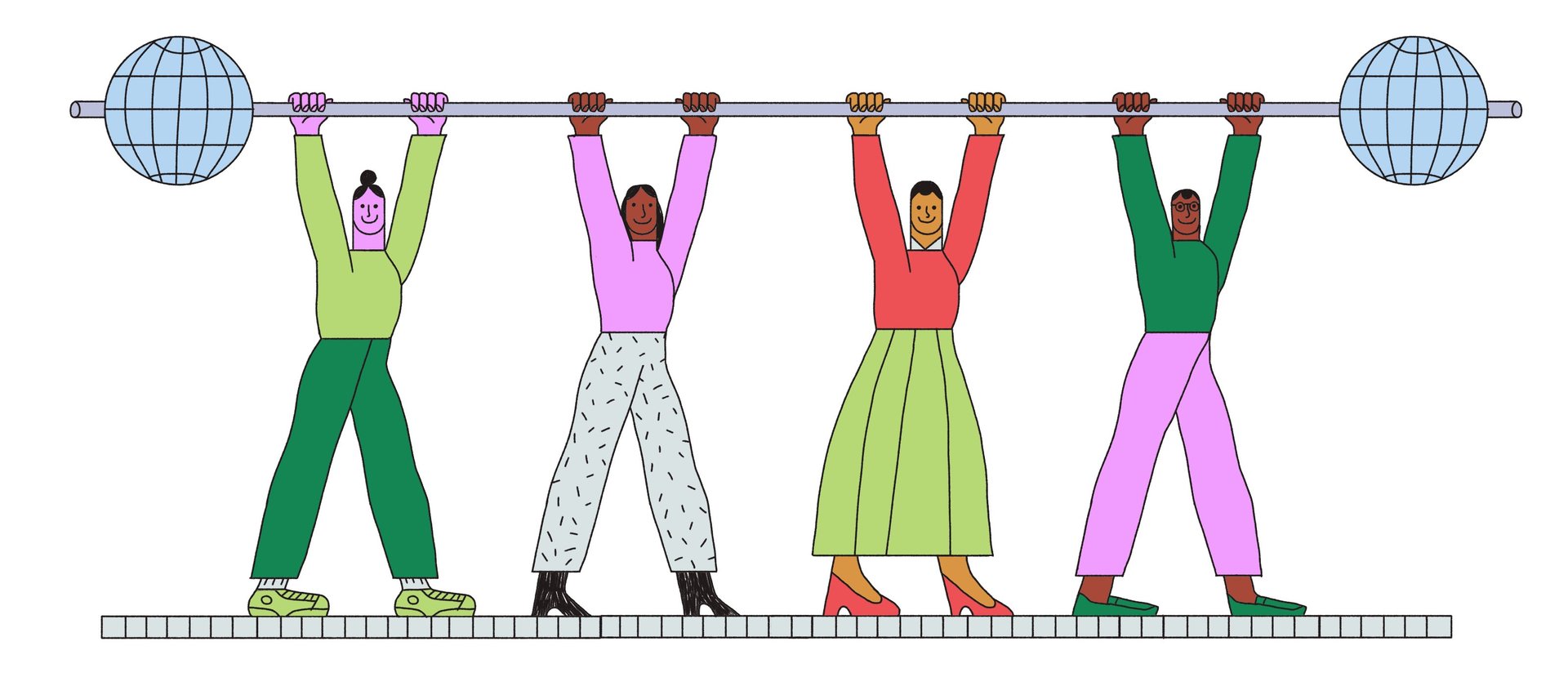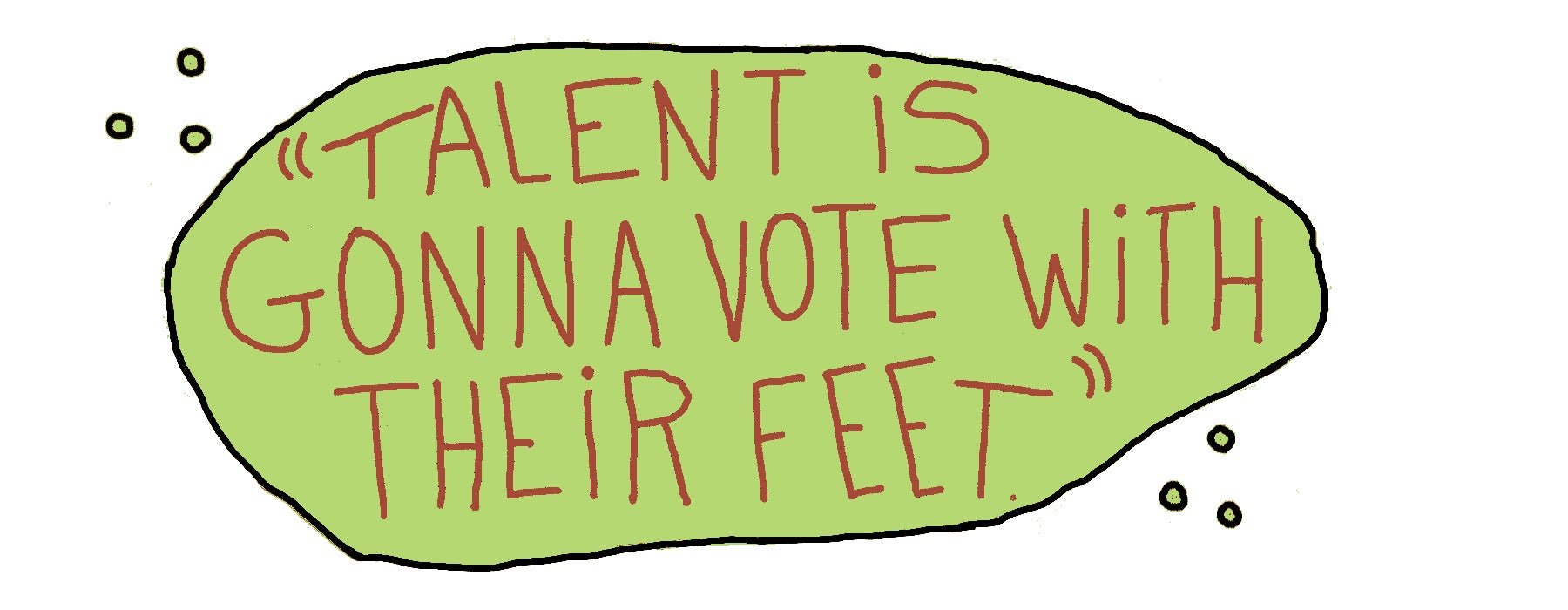How to prep people managers for the Gen Z workforce
Ways to use the generation’s seven defining characteristics to recruit, retain, and develop this fresh crop of colleagues

Diverse. Digital. Disrupted. Dynamic. If you’re a people manager right now, you may have easily recognized that broad-brush description as Gen Z.
The largest and most diverse generation on the planet, Gen Z will represent 82 million people by 2026 and is the first age group to be digitally literate from birth.
But as they navigate the working world or brace themselves to arrive here, they are definitely poised to transform it. Therefore, understanding the nuances of these workers is critical for people managers charged with setting up organizations for lasting success.
As Hope Bailey, Global Head of Solution Advisory at SAP SuccessFactors, recently explained at a Quartz at Work from Anywhere virtual panel, “Gen Z views the world much more dynamically because of their comfort with disruption.”

To future-proof your company, learn Gen Z’s seven defining characteristics, how these qualities show up on the job, and how HR leaders can update their practices to recruit, retain, engage and develop this fresh crop of colleagues. Get to know them now.
GEN Z TRAIT #1
What managers need to consider:
Gen Z has never experienced a time without digital devices, so they’ve grown up more tech-literate than their older counterparts. From their first day on the job, many Gen Z workers can handle complex technical tasks with little oversight.
However, although they are highly proficient with online tools, 52% of surveyed Gen Zers expressed concern that their soft skills may not measure up to their technical ability. This could be in part due to their communication style. Having been raised on digital communication, Gen Z employees are more likely than more tenured workers to carry a casual conversation style into the office—think memes, abbreviations, and emojis.
How managers can respond:
Correspond in ways that are more comfortable to young workers than their predecessors, including via instant messaging apps and video-call platforms. Keep an eye out for opportunities for reverse mentorship, pairing new hires with older orientation buddies to help introduce them to the office’s existing communication styles. This can increase a holistic sense of workplace proficiency and belonging.

GEN Z TRAIT #2
Gen Z witnessed the Great Recession in childhood, and now they’re graduating into a pandemic economy that offers less stability than before. More than 45% of American companies are using more freelance work than before the pandemic. And AARP estimates that the US government’s retirement trusts will be depleted by 2034, so this generation will likely never see the benefit of social security the way their grandparents did.
Furthermore, many have seen their parents’ earning potential interrupted by the pandemic, and some may be in a position in which they’re tasked with supporting their extended families. Gen Z is looking for stability where it is scarce, and many aspire to salaried jobs to achieve a sense of security. “They’re so financially minded,” Bailey commented, “grounded in saving and concerned about the cost of education and housing.”
How managers can respond:
Hiring managers should be prepared to answer detailed questions about salary and benefits and expect workers to come in ready to negotiate compensation. Work to create a company-wide culture of transparency around wages, perks, and promotions to engender trust and keep working relationships on solid footing.
GEN-Z TRAIT #3
What managers need to consider:
While the transition from school to work is often rocky, members of Gen Z are finding themselves particularly disoriented from the pandemic. They’ve experienced unpredictable stops and starts at school, forcing them to adapt to an improvised set of rules that dictate their daily rhythms, who they’re allowed to socialize with, and what’s expected of them in the classroom.
All the same, Gen Z workers are generally highly motivated to learn and improve. According to LinkedIn’s Workplace Learning Report 2021, 83% of Gen Z workers actively want to learn skills to perform better in their current role, and as a cohort, they spent 50% more time learning online than any other generation in 2020. In a world where freelance work is readily available, part of what keeps young workers at established companies is clear and guided career development and growth opportunities.
How managers can respond:
Embracing their verve for learning can go a long way toward ensuring their satisfaction and success on the job. As they transition into the workplace, inspire them with new development opportunities and experiential learning and skills coaching, peer-to-peer connections, role recommendations, and learning pathways. As they settle in to the requirements of the role, be proactive about upskilling opportunities in order to maintain a sense of growth; quarterly progress check-ins and incremental promotions can also keep up the momentum.

GEN-Z TRAIT #4
What managers need to consider:
Long before they entered a corporate structure, Gen Z grew up with the tools to accomplish a lot on their own, whether that’s learning to code on weekends or running a kitchen-table business in high school. Now as they enter the workforce, two-thirds of Gen Z workers say they want autonomy in choosing the technologies they use to complete their work. Traditional power dynamics at work assume that the youngest employees are the least skilled, but thanks to the many early-learning tools at their disposal, from design software to YouTube tutorials, this is less true of Gen Z.
How managers can respond:
Wherever possible, offer a menu of applications for workers to choose from and give employees freedom to decide how to get the work done. Experiment with assigning a mix of large, autonomous tasks and smaller bites of work that ladder up to group initiatives. Offer young workers opportunities to lead and platforms to voice their ideas, whether it’s voicing-over a few presentation slides in a departmental meeting or starting a Slack channel that they can contribute within when a brainstorm strikes.
Quartz at Work from Anywhere panelist Paul Rubenstein, chief people officer at Visier, summed it up like this: “If they can’t see a feature they worked on or a product they helped develop or a change they wanted implemented at work actually come to fruition, that’s another reason they’re going to leave. People want to feel like they’re making an impact in the world and at work.”
GEN-Z TRAIT #5
What managers need to consider:
Compared to older generations, which often look at social responsibility as a way to offset other business practices, Gen Z overwhelmingly views sustainable development as the table stakes of doing business. According to a 2021 survey from the global marketing firm Lewis, 67% of Gen Z believe that a company’s values are more important than its CEO, and only 19% would be willing to work for a company whose values don’t align with their own.
And with research tools at their fingertips, this generation is quick to identify false promises, particularly when companies purport to be grounded in a progressive purpose but their business practices don’t reflect those ideals. On top of company values, Gen Z also prioritizes meaning in their own day-to-day work, and they keep an eye on the ways their contributions feed the organization’s broader impact.
How managers can respond:
Clearly define the mission of your company and your team, track individual progress within the context of those high-level goals, and celebrate their wins large and small, where, when, and how they want. Crucially, ensure that your organization lives up to its stated mission—or better yet, appoint Gen Z employees to help define and enforce it.

“Talent is gonna vote with their feet,” warned panelist Christine Y. Cruzvergara, chief education strategy officer at Handshake. “And if employers don’t do some of the things that they’re looking for, especially related to DEI or standing up for causes, they’re not going to stay.”

GEN-Z TRAIT #6
What managers need to consider:
Due in part to the frequency and intensity of bleak news in their lifetime, from wildfires and hurricanes to mass shootings and human rights abuses, Gen Z experiences unprecedented levels of depression, anxiety, and stress. To their credit, they’re comfortable discussing mental health and the ways they’re caring for themselves with their peers, and they expect their jobs to support them in those pursuits.
One 2019 study from the nonprofit Mind Share Partners found that 75% of Gen Z workers had left a job at some point for mental health reasons, but many are still hesitant to confide this to their supervisors. A 2021 Deloitte report found that only four in 10 Gen Z workers bring up mental health concerns to their managers.
“Employees feel the burden of addressing their own burnout falls squarely on their shoulders,” affirmed Rubenstein. “And they’re not talking to their managers, because they’re afraid of being seen as incapable of doing their job.”

How managers can respond:
In regular one-on-one meetings and in group settings, include wellness check-ins to encourage employees to share their own feelings and to hear from others. Make new hires aware of your company’s resources and advocate for additional support among leadership, whether it’s investing in resiliency training and stress management sessions, increased paid time off, or insurance plans that cover mental health.
With each new hire, have an explicit conversation about the value the company places on mental health, and identify a go-to person for discussions on personal wellbeing. And whenever possible, model a healthy work-life balance to your team by taking time off and fully unplugging.
GEN-Z TRAIT #7
What managers need to consider:
Whereas older generations have been socialized to minimize their identities in professional settings, the most diverse generation in history believes that drawing on their backgrounds—gender, sexuality, ethnicity, physical and neurological ability, weekend interests—can be an asset in the workplace. Furthermore, 99% of surveyed Gen Zers reported in 2021 that workplace diversity, equity, and inclusion initiatives are very important to them, both to educate older, less diverse employees and to continually reinforce their own growth as individuals.
How managers can respond:
As much as all young employees need to be guided, this generation craves being heard. Take time to learn employees’ personal histories (should they choose to share), their values, and their motivations; opening doors to this kind of sharing empowers people to bring their authentic selves to work.
Signal respect by learning and remembering individual elements of their identity such as their preferred pronouns. And if you make a mistake, apologize, and create a culture where others are encouraged to do the same. In addition to making young employees feel seen, this practice fosters a sense of intergenerational solidarity.
MANAGERS’ GEN-Z MANTRA
“In a multigenerational workforce, what’s most important is to take the time to be explicit in your communication,” recommended Cruzvergara. So to successfully incorporate Gen Z into the workforce, people managers should adopt the motto, “listen and learn.”
“They have the confidence to say, ‘Hold on. I see this differently,’” said Bailey. “Maybe they’re right, and maybe they’re wrong, but this fosters dialog.”
This generation is demanding that work become an increasingly positive force in the lives of employees and in broader society, so give these new workers platforms to express their needs and demonstrate that you hear them by making your workplace a more supportive environment for everyone in it, Gen Z and above.
Discover the technology you need to navigate your next-gen workforce.
This content was produced on behalf of SAP SuccessFactors by Quartz Creative and not by the Quartz editorial staff. Sources are provided for informational and reference purposes only. They are not an endorsement of SAP SuccessFactors or SAP SuccessFactors’ products or services.